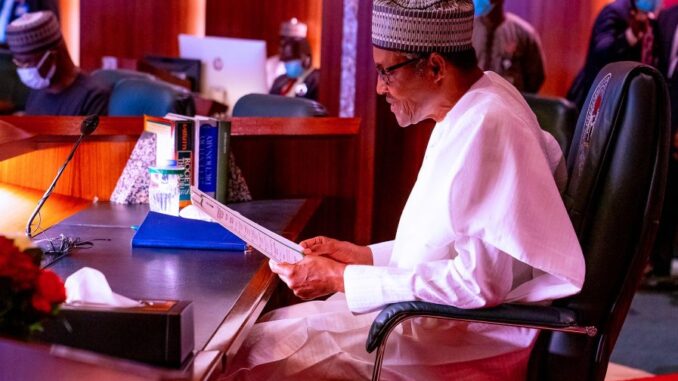
We have been focusing on the national question remarkably known as ‘federalism,’ an idea whose time has indeed come. We have in previous comments on the issue raised both conceptual and empirical matters.
In this present endeavour, we draw attention to the contradictions of the present unitary status quo that is mislabelled as the Federal Republic of Nigeria. The protagonists of a unitary system of government have for a long time advanced the reasons for such a system. They argue that federalism is susceptible to separatist impulses, duplication of responsibilities, and a slowdown of policies and programmes.
On the other hand, the unitary polarity ensures cohesion in policy and encourages national integration. These arguments may be plausible in climes where there is coherence in cultural practices as well as religious and linguistic uniformity.
The inherent federal characteristics of the peoples of the geographical space called Nigeria, namely, linguistic differentiation, territorial delineation, and other sundry cultural disparities accentuate the eternal wisdom of cohabitation within a federal constitutional arrangement in ways that can keep at bay mutual recriminations, unleash a space for development underlined by both comparative advantage and economy of scale. We have lost this to the irredentism and exploitative inclinations of the actors at the centre in the prevailing skewed arrangement prone to the anarchic cycles of violence, development inertia, and rudderlessness of the ship of state.
The present contradictions of the Nigerian state include its inability to fulfill the primary responsibility of the state which is to provide security of life and property. This is engrossed in Section 14 (2) (b) of the 1999 Constitution as amended which states inter alia the security and welfare of the people shall be the primary purpose of government.” Today, there is virtually no part of the country that is not under the threat of kidnappers and armed bandits. Over the years well-meaning Nigerians and some state governors have called for the establishment of state police under the rubric of community policing. As always, the actors at the centre, veritable stand patters, have refused to see reasons hanging onto the overweighed exclusive list. Recently, state executives have had to seek refuge under the residual list to establish some quasi security outfits to secure the lives and property of their citizens. The Amotekun in the southwest and several vigilante organisations in other parts of the country typifies the point being made. Despite all of these, the central authorities still live in denial.
Another contradiction of the system is that the Nigerian state is now insolvent. Without fiscal discipline, it has landed itself in another cycle of indebtedness after the relief of 2005 under the Obasanjo administration. Today, the country’s external debt is hovering around $29 billion. The government has exhibited an embarrassing lack of political will to cut the cost of governance. A well-known fact that the country parades lawmakers who earn more than their counterparts in the First World. Beyond what ought to be essentially an exercise in subsidiarity, the local government structures, 774 in all, are otiose and remain conduit pipes for primitive accumulation of the commonwealth. Besides, despite overt propaganda on war against corruption, the entire society reek of corruption in ways that still merit the Cameronian adjective of a ‘fantastically corrupt’ country.
The reliance on the central authorities due to its control of major sources of revenue generation has bred dependency syndrome in the so-called federating states such that at every turn, they rush to the central authorities for hand-outs. This fiscal pathology has robbed the states of financial autonomy and the ability to fend for their citizens in meaningful ways. More important is the fact that it has nursed a lack of ownership of the country. Nigeria is simply a no-man’s-land, valuable for what each stakeholder can garner for itself. For this reason, the ‘giant’ of Africa is not just only slumbering but dying incrementally.
Yet another important challenge of the existing status quo is its deepening of ethnic faultlines by the absence of balance of power among the component nationalities of the Nigerian state. Governance is not only underlined by sectionalism; also parochial consideration is mainstreamed to levels of absurdities. This confirms the London-based The Economist’s view of the country at the turn of a new century in 2000 to the extent that the country was badly divided and compared its essence to its football team with talented individual players who do not play as a team.
In the security sector, especially the military, the language of business is English and Hausa. This means several indigenous languages such as Yoruba, Edo, Ibibio, and others are regarded as vernaculars. This action takes the country’s security formation in the colonial era ‘Hausa Constabulary’ while simultaneously undermining the country’s pluralism.
It must not be forgotten how the central authorities have subdued creative initiatives from the component states and individuals by a dubious resort to items under the exclusive list. In this manner, development is stifled while citizens are alienated and the country always loses in the process.
Given the foregoing, need we emphasise further why federalism is the answer. Its embrace can perhaps save the country from a predictable descent into anarchy and possible disintegration. The signs are all too obvious. As William Shakespeare puts it in Julius Caesar, “There is a tide in the affairs of men, which taken at the flood, leads on to fortune. Omitted, all the voyage of their life is bound in shallows and in miseries.”
END

Be the first to comment